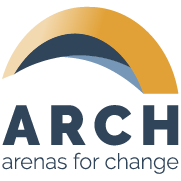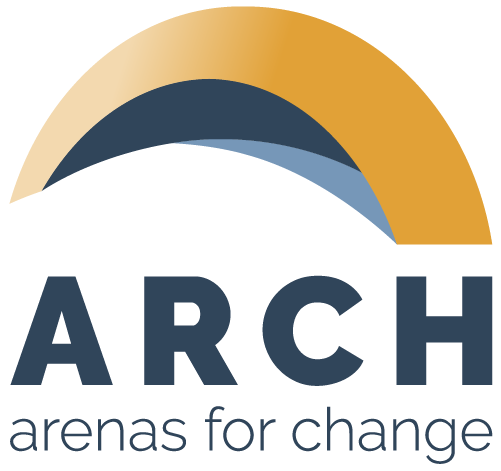Link to literature paper
Note: The following paper focuses on the SEEN keystones of the ARCH facilitation framework. If you’d like research information specific to incorporating horses for mental health and well-being, click the button below to go to the research summary provided by Horses for Mental Health.
Grounding ARCH Facilitation Framework Constructs in the Literature
Thank you to Sharon Boyce and Noreen Esposito for writing this paper grounding the ARCH facilitation framework constructs in the literature.
You can read or download the paper below.
To reference this paper:
Boyce, S.D., and Esposito, N. (2022). Grounding ARCH facilitation framework constructs in the literature. Retrieved [date, i.e. 11th May, 2023]. From: https://arenasforchange.com/lessons/link-to-paper-2/.




Such a wonderfully rich deep dive into the details of all these constructs!
It brought up memories of past paradigm shifts in the field of education when I was teaching. I remember the initial wariness teachers had in the mid 90’s toward constructivist education over imparting lessons, strength building and not focusing on learning deficits, and the move towards positive behavior intervention over punishment. Teachers who thrived in a more open, democratic classroom environment had an easier time implementing these changes.
And stories! Young children love to hear them and tell (or create) their own.
I appreciate you sharing this information, Sharon and Noreen!
Thank you! This is great; just what I have been wanting to read!
Best,
Cindy B
I really enjoyed reading this article because it gave the background of the different philosophies utilized by ARCH. I will highlight only a few these philosophies. First under ‘What is Social Construction’ it states “that knowledge and reality are created through conversation.” and that “people construct the realities of their lives through language which are regarded as stories.” People must understand their personal story and through that understanding they can change their story. Since I am creating a (bully/suicide) bullycide prevention curriculum for secondary school teenage youth, It is crucial that I be able to understand and sell the importance of understanding ones own story.
Another example of the ARCH philosophy I highlighted was bring out the difference between the problems and the solutions. As a career educator working with students who exhibit significant acting out behaviors, I have learned the importance of teaching the students that they are NOT the problem. When they can accept this concept, they are able to move into a solution oriented phase.
Still another area of this article was the discussion of empower and empowerment. I believe that all people want to feel empowerment, especially teenagers. They are at the age where they are struggling to find their autonomy, yet are not graceful learning this new skill and still need some sort of assurance and guidance. I really enjoyed the section of the article where a list of empowerment-based norms were adapted from the work of Farrelly and Brandsma (1974). I Believe it is vital for students to see and understand that they can change their story, and that they have the support and safety needed to risk changing their story.
Finally, I really enjoyed reading about how ARCH utilizes character strengths and resilience. This fits perfectly with the work YEEHAAA is doing with Fatima Doman. In the beginning of her book ‘Authentic Resilience’, Fatima wonders why some people seem to exit extremally difficult experience stronger than others. She explains that all people have 24 character strengths and that each strength can be enhanced. One of the goals of YEEHAAA is to help students understand their own character strengths and resilience with ARCH philosophies so they can change their own stories in a way that brings them a more successful and rewarding life.
In conclusion, I really found this article enlightening giving me a deeper and wider understanding of the ARCH philosophies. Thank you for providing this article and for ALL the work ARCH is doing for the betterment of our struggling world.
The perception and understanding of who we are in this world should never be judged harshly by ourselves and others. There is a deep longing for acceptance that can often meet us at the most inopportune times in our life. Despite this, each of us have the opportunity to discover who we are, how we fit and more importantly the best way to live a meaningful and purpose filled life. This frame work gives us this opportunity. It has been put together without fear, based on love and focuses on the intrinsic value that we all have yet not all of us are encouraged to find in our own story. Thank you for this detailed understanding of ARCH. It simply makes perfect sense in a world that needs this approach to learning, loving and living an abundant life.
Thank you Sharon Boyce, Noreen Esposito, Commentary Contributors, and the ARCH creators team. As we continue to practice the ARCH Keystone concepts, this literature has been very helpful. Implementing the ARCH framework has given the YEEHAAA program various ways for creative learning (natural flow, internal/external, empowering mindset…) where students engage one’s value, respect, and a voice to express self-awareness, and personal growth through the collaborative education sector who is supporting the ARCH framework.
A year has past as we continue to implement the ARCH framework under the Developmental Organization (mental health, equine services, education and coaching) where individual schools are starting to take notice and interest in the ARCH framework. The educational YEEHAAA curriculum is to reduce bullying and suicide (bullycide) for a safer school environment (junior and high school students) students are able to develop empowerment for self and others, and receive credit hours towards graduation under the ARCH concept. We are proud and thankful to all of the ARCH Community and members!
Thank you for making this available.
Muito rico poder acessar as bases conceituas e os princípios da metodologia que é voltada para o desenvolvimento de pessoas a partir dos recursos dos cavalos e da natureza. Para mim o que mais faz sentido são os valores e fundamentos que indicam o autoconhecimento, o desenvolvimento pessoal e a postura sempre humilde em relação à Verdade como ações/atitudes essenciais aos mediadores/profissionais na vivência dos processos COM os clientes.
I always enjoy reading the research behind concepts that may be new to me.
Research/ it’s process – opens up opportunities for learning, encourages curiosity, and promotes growth! Great information. Thank you, Kathy
WOW. This was an intense reading for me. I absolutely loved it. The way I learn I needed to print it after I read it and took notes. I will be sure to go back over it to grasp an even better understanding. There’s a lot of meat and potatoes in this, I certainly don’t want to overlook anything. This is all new to me.
I have never heard of ” power ” being broken down before, over, to, and from. Language is regarded as a metaphor for the reality of lives through language, stories. I think I got it. SOS is very important to me, and this is something that I try to practice. Beautifully explained to understand the importance of the facilitator’s mindset. Creating space, this is a privilege to be given the gift to be able to possibly do this for someone else. Reading about all of this is empowering me to want to read and learn more, and become curious. Very exciting! I love the strength-based model, resilience, and the idea of helping to instill hope. Externalization, who knew…. Objectification, oh my!! All of this is foreign to me and is just amazing! I am so grateful to be given this opportunity to learn from you all. Thank you 🙂
I wish I would have looked at this before completing the 59 modules of the training. It would have been good to look at while taking in the videos at the end
Thanks, Sandra, that is a great thought!
This is perfect. I am grounded in data and research, so reading this is very important to me. Thank you!